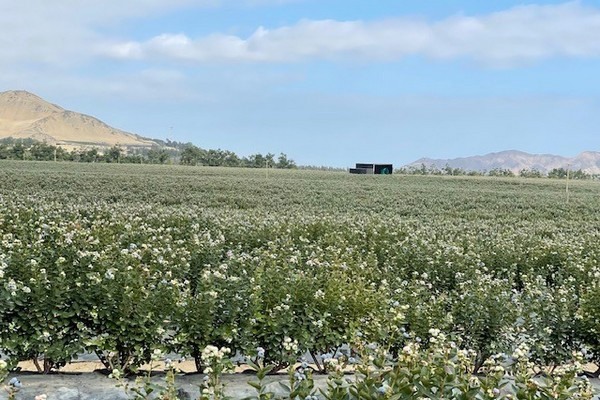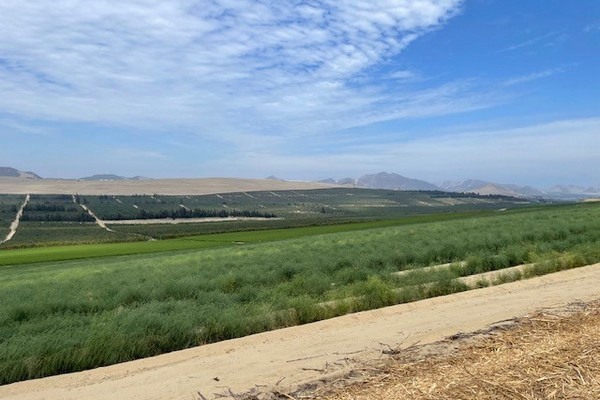Peru expects a significant increase in organic blueberry volumes and new opportunities in Asia for this product this season. Meanwhile, the avocado market faces a more challenging outlook, with prices under pressure from oversupply and competition from other sources. Europe remains the main market for blueberries, but China is beginning to emerge as a key player, while the United States continues to strengthen its position as a top target for avocado exports.
 © Agualima
© Agualima
Agualima, one of Peru's leading organic blueberry exporters, expects to export nearly 5 million kilos this season, up from 4 million last year. "We focus on the organic niche, which allows us to differentiate ourselves and serve specific markets," stated Juan Enrique Pendavis, the company's financial and commercial director. The company's commitment to growing in soil, a key requirement for organic certification in Europe, gives it an advantage over growers who use pots, as that method doesn't meet European standards.
 © Agualima
© Agualima
China is now part of the company's global strategy. Agualima is the first Peruvian company to obtain organic certification to export blueberries to China. "It's currently a nascent market, but there is no reason why China should not follow the path of Europe and the United States," stated Enrique Harten, commercial agent. Blueberry consumption in China is growing annually. Despite high domestic production, demand for quality fruit boosts interest in Peruvian blueberries.
 © AgualimaWhen it comes to prices, the traditional market remains the standard. "No matter how organic you are, if the price of conventional blueberries drops, organic blueberry prices follow," Harten stated. Nonetheless, worldwide demand for organic blueberries remains strong, fueled by a more selective consumer base that appreciates taste, texture, and the overall eating experience. "Today, organic blueberries are sweeter and crunchier, offering a better experience than ever before," Pendavis added.
© AgualimaWhen it comes to prices, the traditional market remains the standard. "No matter how organic you are, if the price of conventional blueberries drops, organic blueberry prices follow," Harten stated. Nonetheless, worldwide demand for organic blueberries remains strong, fueled by a more selective consumer base that appreciates taste, texture, and the overall eating experience. "Today, organic blueberries are sweeter and crunchier, offering a better experience than ever before," Pendavis added.
The sector, however, faces major challenges. Logistical costs, climate changes, and labor shortages for harvest affect planning. "Agriculture has many external variables; you have to be prepared for different scenarios," Pendavis said. Additionally, the increasing global supply requires diversifying destinations to avoid price pressure.
 © Agualima
© Agualima
"In contrast, the Peruvian avocado faces a more difficult situation. The last season saw large volumes that caused saturated markets and low prices, especially in Europe. Mexico has an advantage due to its proximity to the United States, while Colombia has felt the impact of competition from Peru and higher logistical costs. Still, global avocado consumption is expected to grow, driven by its reputation as a superfood. Participating in international fairs and exploring new markets like Indonesia are seen as key strategies to sustain growth," he concluded.
For more information:
Juan Enrique Pendavis and Enrique Harten
Agualima
La Libertad - Peru
Tel: +51 9 6175 7371 / +507 66117494
Email: [email protected]
Email: [email protected]
www.agualima.com
